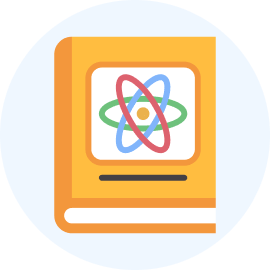GATE Physics Exam > GATE Physics Videos > Quantum Mechanics for GATE > Lecture 4: Spin-Quantum Mechanics
Lecture 4: Spin-Quantum Mechanics Video Lecture | Quantum Mechanics for GATE - GATE Physics
FAQs on Lecture 4: Spin-Quantum Mechanics Video Lecture - Quantum Mechanics for GATE - GATE Physics
| 1. What are the key principles of quantum mechanics? |  |
Ans. Quantum mechanics is based on principles such as superposition, entanglement, and the uncertainty principle. Superposition states that particles can exist in multiple states simultaneously until measured, while entanglement refers to the connection between quantum particles regardless of distance. The uncertainty principle states that the position and momentum of a particle cannot be simultaneously measured with precision.
| 2. How does quantum mechanics differ from classical physics? |  |
Ans. Quantum mechanics differs from classical physics in that it describes the behavior of particles at the atomic and subatomic levels, where classical physics fails to accurately predict outcomes. Quantum mechanics introduces concepts like wave-particle duality and quantization, which are not present in classical physics.
| 3. What is the significance of Schrödinger's equation in quantum mechanics? |  |
Ans. Schrödinger's equation is a fundamental equation in quantum mechanics that describes how the wave function of a quantum system evolves over time. It plays a crucial role in determining the probabilities of different outcomes in quantum systems and is used extensively in calculating energy levels and wave functions of quantum particles.
| 4. Can quantum mechanics explain phenomena like tunneling and quantum teleportation? |  |
Ans. Yes, quantum mechanics can explain phenomena like tunneling, where particles can pass through energy barriers that would be impossible according to classical physics. Quantum teleportation, which involves transferring the quantum state of a particle to another particle instantaneously, is also explained by the principles of quantum mechanics.
| 5. How is quantum mechanics applied in modern technology and research? |  |
Ans. Quantum mechanics is the foundation of technologies like quantum computing, quantum cryptography, and quantum sensors. These technologies leverage the unique properties of quantum systems to achieve faster computation, secure communication, and precise measurement, leading to advancements in various fields such as information technology, healthcare, and materials science.
Related Searches




















